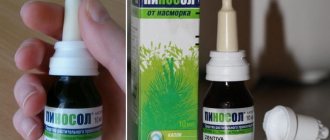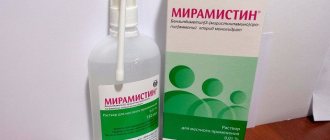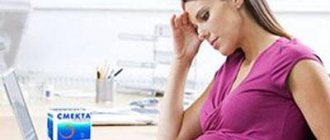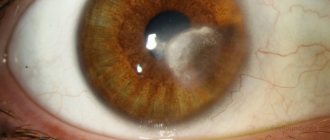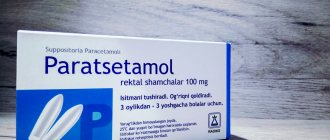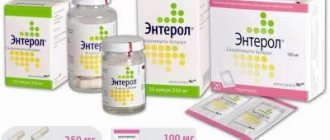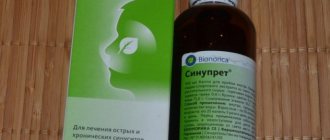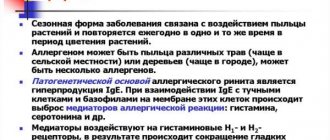Danger for pregnant women
A stuffy nose is a pathology that is not always related to otolaryngological diseases. The disease is accompanied by nasal discharge, or perhaps without it. Therapy should be prescribed by a doctor after a diagnosis and a complete examination.
Pregnant women may have a stuffy nose for various reasons:
| Cause | Explanation |
| Cold | Appears due to low immunity of pregnant women. |
| Allergy | Occurs in those pregnant women who had allergies before pregnancy. |
| Hormonal changes | During the process of bearing a child, a woman produces estrogen, which negatively affects the mucous membrane. It is impossible to cure such a phenomenon. After giving birth, everything will go away on its own. |
The appearance of inflammation in the nasopharynx leads to the risk of complications that are associated with the spread of inflammation to other organs.
So, it's possible:
- Development of laryngopathy - swelling spreads to the mucous membrane of the oropharynx. The condition is manifested by a sore throat and hoarseness, as well as a cough. The latter symptom leads to the risk of premature birth.
- Hearing loss is swelling of the mucous membrane and disruption of its airway function. A woman notices that her ears are blocked.
- The development of pharyngitis - difficult breathing leads to the fact that a woman has to breathe through her mouth. In this case, cold air comes into contact with the mucous membrane and damages it.
- The appearance of sinusitis is a complication that occurs due to the activation of bacterial microbes or the addition of new pathogenic pathogens.
- The appearance of bronchospasm is due to an allergic factor.
Doctors say that nasal congestion is a dangerous phenomenon during pregnancy. There is a risk of intrauterine infection of the unborn baby. Infectious diseases disrupt gas exchange in the lungs, which affects the appearance of fetal hypoxia.
If a fever occurs with nasal congestion, the fetus may develop heart and vascular defects. Uterine tone may also appear and blood circulation in the placenta may be impaired.
The combination of the above symptoms increases the risk of:
- intrauterine fetal death;
- intrauterine infection;
- spontaneous abortion;
- the appearance of developmental defects.
When to see a doctor
If nasal congestion in a pregnant woman continues for more than 3 days, then an urgent need to visit a doctor.
He will be able to find the true causes of the problem and prescribe remedies that will not harm the mother and child:
- For allergic rhinitis, a specialist identifies the allergen and prescribes medications that create a protective barrier.
- For rhinitis, medications are prescribed, the use of which is not prohibited during pregnancy.
Nasal drops for pregnant women should be chosen on the recommendation of a doctor
- For bacterial rhinitis, antiseptic medications are prescribed or antibacterial therapy is carried out.
- In difficult cases, hormonal drugs are prescribed.
Runny nose during pregnancy - when are drops needed?
Before putting any drops into your nose, it is important not only to study the instructions, but also to determine the nature of the rhinitis. In almost 60% of cases, a runny nose is viral in nature, but sometimes bacteria, allergens, or hormonal changes can be the cause. In almost all cases, a runny nose has the same symptoms, including:
- severe nasal congestion;
- feeling of dryness in the nose;
- sneezing;
- itching and irritation;
- copious mucous discharge from the nose;
- disruption of normal nasal breathing.
In addition to symptoms indicating rhinitis, other signs may be present, including sore throat, fever, cough, and general deterioration in health. Such symptoms will bother a woman only when the cause of the disease is a viral or bacterial infection. With an allergic or physiological runny nose, the picture is less pronounced. It is necessary to treat a runny nose in pregnant women comprehensively, but to eliminate it it is necessary to use symptomatic drugs, the mechanism of action of which will be aimed at eliminating swelling, inflammation, congestion, and reducing mucous secretions.
Prevention
To avoid nasal congestion in pregnant women and alleviate hormonal rhinitis, a woman should monitor her health and avoid hypothermia. It is necessary to visit crowded places less often, sleep at least 8 hours a day and eat right.
Also, swelling of the nasal mucosa will become less noticeable if:
- Constantly ventilate the room and do not dry out the air in it.
- Limit contact with allergy triggers.
- If a pregnant woman increases the amount of fluid consumed and replaces caffeine-containing drinks with herbal teas.
Drop classification
Nasal drops for pregnant women relieve the main signs of nasal congestion. Self-selection of medications in this condition is strictly prohibited.
After all, many types of such drugs have a negative impact on the development of the unborn child. That is why a pregnant woman should visit a specialist to prescribe the correct treatment.
Therapy for nasal congestion includes the following groups of drugs:
- Hormonal agents. Their action is realized with the help of glucocorticosteroids. Such drops include synthetic analogues of human hormones that are produced by the adrenal cortex. The active substances are beclomethasone and mometasone.
They have an anti-inflammatory effect and reduce the likelihood of developing toxic reactions. Also, the products do not cause vasoconstriction and do not have a negative effect on the body.
- Antiallergic drugs. Their action is based on blocking bronchospasm, which is caused by a high concentration of the amino acid histamine.
For rhinitis of an allergic nature, a doctor may prescribe antiallergic drugs
- Herbal preparations. The active ingredient in this group of medicines is essential oils obtained from various plants. Peppermint and eucalyptus extracts are often used. They have an anti-inflammatory and antiseptic effect and act on receptors that are sensitive to cold, and also relieve swelling.
- Homeopathic medicines. They are quite safe and are recommended for use during pregnancy. The immunostimulating effect in this case is not achieved immediately, but after some time. Therefore, such medications are designed for long-term use.
- Antibacterial drugs. They are mainly prescribed in the second half of pregnancy and only in exceptional cases.
- Antiviral agents. Their effect is based on the launch of antiviral immunity. Some types of drops can be used to prevent viral infections.
In addition, vitamin and mineral supplements are prescribed.
Unsafe drugs
Not all vasoconstrictor nasal drops for pregnant women are strictly prohibited. Some of them are prescribed, but only under the supervision of a doctor and taking into account the benefits for the woman who is expecting a baby.
Pregnant women should not take nasal drops containing oxymetazoline, as it acts on vasoconstriction not only at the site of instillation. Together with the blood, it spreads throughout the body and affects the blood vessels of the placenta. Oxymetazoline nasal drops lead to insufficient nutrition and oxygen supply to the fetus. This is especially dangerous in the early stages of pregnancy, when all the organs of the future person are being laid. This includes nasal drops Snoop, Xymelin, Galazolin, For the nose and other drugs.
Relatively safe vasoconstrictor nasal drops for pregnant women are products containing xylometazoline and ethanol. This is a whole series of drugs that are taken by a pregnant woman, but only as prescribed by a doctor. He will evaluate all the positive and negative consequences of using the drug. These include nasal drops Adrianol, Tizin.
Tizin
Even the form of release of the drug affects the possibility of its use for treating pregnant women. Thus, rhinorus nasal drops are strictly prohibited. But their analogue in the form of a spray is prescribed with caution and under the supervision of a doctor.
It is a mistake to believe that baby nasal drops during pregnancy will not harm the fetus and will not aggravate pregnancy. Here, too, much depends on their composition and the use of the product must be justified. Uncontrolled use of the drug does not have the desired therapeutic effect and drives the infection deeper into the respiratory tract.
Which drops are prohibited
Nasal drops for pregnant women have a vasoconstrictor effect.
On the one hand, this is an advantage, since the effect of such drops appears within a few minutes after their use. With a one-time action and compliance with doses, they exhibit a local effect, but it is easy to exceed the permissible dosage. In another case, the effect of the drug will spread to the entire body, which will cause circulatory problems in the fetus. Vasoconstrictor medications are also addictive.
Medicines that are strictly prohibited for use by pregnant women
Every pregnant woman should be very careful when choosing any medications, even if we are talking about nasal drops, because they can affect the health of the child.
After an appropriate consultation with a specialist, during which the doctor explains in detail which drops are allowed to be used and which drops should be avoided, the woman begins treatment.
In the first and second trimester, vasoconstrictors such as Naphthyzin, Vibrocil, Galazolin, Xymelin and others are prohibited.
Top 10 drops from the pharmacy
Nasal drops for pregnant women contain mainly sea water and ordinary salt. There are no chemicals or preservatives in such products.
Morenasal
Morenasal is a solution of Atlantic sea salt, which includes natural active ingredients that cleanse the sinuses. Morenasal is produced in the form of a nasal spray.
The composition of the medicine includes:
- sodium salts;
- magnesium salts;
- calcium;
- hydrocarbonates.
Morenasal is necessary for the complex treatment of a runny nose and for cleansing the sinuses and moistening them.
Indications:
- chronic diseases of the nasal cavity;
- complex therapy of the nasal mucosa in people who live in poor climatic conditions;
- complex therapy of respiratory infections.
Contraindications:
- age up to 1 year;
- allergy to substances in the product.
The spray is prescribed for daily intranasal use. Pregnant women are prescribed 2-3 injections 4-8 times a day. The medicine is sold in pharmacies without a prescription, price from 260 rubles.
Marimer
Marimer nasal drops are prescribed to pregnant women during sinus congestion. The medicine is produced in the form of an aerosol. The medication contains the active ingredient - a sterile isotonic solution of sea water.
The medicine normalizes the physiological state of the nasal mucosa. It thins mucus and makes it easier to exit the nose.
Microelements found in sea water improve the functioning of the ciliated epithelium, thereby increasing the resistance of the sinus mucosa to viruses.
Indications:
- acute inflammation of the nose;
- allergic rhinitis;
- prevention of infectious diseases of the nose.
Contraindications for the drug include children under 1 year of age. Adults are prescribed medication for prophylactic purposes 4-6 times a day. The product is sold without a prescription, price from 230 rubles.
Nazivin
Nazivin is a vasoconstrictor drug for local use in ENT practice. The active substance of the drug is oxymetazoline hydrochloride. The medication also contains additional substances: citric acid monohydrate, benzalkonium chloride, glycerol.
The medicine reduces the swelling of the sinuses and the amount of discharge. The product begins to act a few minutes after application and retains its therapeutic effect for 10 hours.
Indications:
- acute diseases of the nasopharynx;
- allergic rhinitis;
- vasomotor rhinitis;
- removal of swelling before diagnosis.
Contraindications:
- atrophic rhinitis;
- age up to 5 years;
- allergy to drug substances.
The medication is prescribed 1-2 drops in each nostril 2-3 times a day. Nazivin is sold without a prescription, price starts from 150 rubles.
Pinosol
Antimicrobial and anti-inflammatory medicine for local use in ENT practice.
Its active substances:
- Scots pine oil;
- peppermint oil;
- Eucalyptus oil;
- thymol;
- Guiazulene.
The product is produced in the form of drops, spray, cream and ointment.
Indications:
- rhinitis of non-allergic origin;
- nasopharyngitis;
- inflammatory diseases of the nose.
Contraindications:
- allergic rhinitis;
- age up to 2 years;
- allergy to substances in the product.
The drug is prescribed to adults on the first day, 1-2 drops with a break of 2 hours, in subsequent days the number of uses is reduced to 3 times a day. Pinosol is sold in pharmacies without a prescription, price starts from 220 rubles.
Nazik
Nazik is a vasoconstrictor combination drug that is widely used in ENT practice. The product is produced in the form of a dosed nasal spray.
The drug contains xylometazoline hydrochloride and dexpanthenol. Additional components: benzalkonium chloride, potassium dihydrogen phosphate. The drug has anti-inflammatory, metabolic and regenerative effects.
Indications:
- allergic rhinitis;
- sinusitis;
- vasomotor rhinitis;
- Otitis media
Contraindications:
- glaucoma;
- atrophic rhinitis;
- age up to 5 years;
- allergy to substances in the product.
Adults are prescribed 1 drop of medication 3 times a day. Duration of therapy is 3-5 days. The product is sold in pharmacies without a prescription, price starts from 130 rubles.
Vibrocil
Vibrocil nasal drops for pregnant women have an antiallergic effect and are actively used in ENT practice.
The active ingredients of the drug are phenylephrine, dimethindene maleate.
The medication has a moderate vasoconstrictor effect and eliminates swelling of the mucous membrane.
Indications:
- acute and chronic types of rhinitis;
- allergic rhinitis.
Contraindications:
- atrophic rhinitis;
- angle-closure glaucoma;
- age up to 2 years.
Adults are prescribed 3 injections into each nasal passage 3 times a day. The product is sold without a prescription, price from 270 rubles.
Delufen
Delufen is a complex homeopathic remedy that has anti-inflammatory, antiallergic and vasoconstrictor effects.
The product is produced in the form of a spray and contains the following substances:
- meadow lumbago;
- mercury iodide;
- loofah;
- black mustard.
The product normalizes the secretory function of the mucosal glands and destroys harmful microorganisms due to the intensive work of the immune cells of the nasal mucosa.
Indications:
- hyperthyroidism;
- age up to 10 years;
- allergy to substances in the product.
The spray is used 2 doses 4 times a day in each nostril. The product is sold without a prescription, costs from 700 rubles. depending on the region.
Aquamaris
Aquamaris nasal drops for pregnant women are a natural medicine for topical use. The product thins mucus and normalizes its production in the goblet cells of the mucosa.
The medicine removes street and indoor dust from the nasal mucosa and reduces its inflammation. The medicine contains a hypertonic solution of water with trace elements and salts.
Homeopathy for runny nose during pregnancy
Homeopathic medicines are popular among pregnant women suffering from a runny nose. Such medications are completely safe, quite effective, but do not act immediately. The effect of use can be noticed no earlier than on the 2nd or 3rd day of regular use. Homeopathic nasal drops or sprays may contain herbal components, as well as calcium carbonate, silver nitrate and other substances. Good results can be obtained from medications such as:
- Euphorbium Compositum.
- EDAS-131.
Some doctors are skeptical about homeopathy, but, as practice shows, drugs from this group cope quite well with a runny nose, relieve swelling and inflammation, restore nasal breathing, reduce the amount of mucous secretions, and most importantly do not cause any harm to the fetus or the woman herself.
Traditional methods
Traditional medicine offers various remedies for the common cold, but not all can be used during pregnancy. So, recipes using black radish and aloe can cause uterine tone.
Camomile tea
The infusion rinses the nose well and is suitable for instillation. To prepare the infusion you will need to take 1 tbsp. l chamomile flowers and pour 125 g of boiled water. Leave for 30 minutes. It is best to use a thermos for such purposes.
Strain the infusion and cool. Drop 6 drops of infusion into each nasal passage. This procedure can be performed up to 6 times a day.
Aloe
The plant has an antiviral effect, therefore it has a positive effect on the nasal mucosa. For the medicine, you will need to take part of the leaf and squeeze the juice out of it with a teaspoon. It is necessary to instill 2-3 drops into each nasal passage, but do not overdo it, 3 procedures are enough.
Kalanchoe
Kalanchoe is used only fresh. First, the Kalanchoe leaves are crushed, then the juice is squeezed out and diluted with 1 teaspoon of boiled water. Next, the solution must be poured into a glass container and used as drops. It is necessary to bury the nose 3 times a day for 1 week.
Kalanchoe juice is another popular remedy for the common cold.
Kalanchoe juice can also be used to wipe the sinuses. Usually the medicine is used for the onset of a runny nose. Thus, swelling decreases and nasal discharge decreases.
Apple or carrot juice
You can instill carrot or apple juice into each nasal passage, up to 8 drops, at any frequency. The main thing is not to mix these 2 juices together.
Inhalations and nasal rinsing
Methods for rinsing the nose:
- Nasal rinsing can be done with eucalyptus and calendula. You will need to take a wide bowl, pour the infusion into it, bring your face closer and start breathing through your nose. This inhalation must be repeated 3 times a day.
- Baking soda needs to be diluted with water and then a little iodine added. Rinse your nose with this product.
- You can wash your nose with laundry soap. You will need to take a cotton swab, wet it and rub it on a bar of soap. Next, apply the stick to the nasal cavity. After a few minutes, severe sneezing and mucus will begin. This is the effect of treatment. Sneezing removes pathogenic germs from the nose.
- Nasal rinsing can be done with eucalyptus and marshmallow. Eucalyptus has an astringent effect, and marshmallow has an anti-inflammatory effect. To prepare the solution you will need to take 10 g of eucalyptus leaves and 20 g of marshmallow leaves. Next they need to be put in 1 tbsp. boiled water and leave for 5 minutes. The liquid needs to be filtered and rinsed out the nose 2-3 times a day.
Garlic drops
To prepare the drops, you will need to take 1 clove of garlic, chop thoroughly and add cold boiled water, leave for 30 minutes and drop into both nostrils. To boost immunity, you can use beet juice diluted in equal parts with boiled water.
Warming up
Performing the procedure:
- Warming the nose with eggs is done like this: take 2 boiled eggs and while they are still hot, apply them to both sides of the nasal sinuses.
- Heating with salt is carried out like this: take sea salt and pour it into a frying pan, then place the dishes on the stove. As soon as the salt is well heated, you need to pour it onto a cloth, roll it into a ball and warm your nose for 10 minutes.
To warm the nose, use salt, for example, sea salt, which is preheated in a dry frying pan, and then placed in a cloth and applied to the bridge of the nose.
- Honey and flour are mixed in equal proportions, while stirring the dough is heated in a water bath. Next, you need to cool the product a little and put it on your nose.
Massage
A light massage will help relieve congestion without the need to use medications. This massage is quite simple to do. You should gently massage the points that are located at the base of the nostrils with your index fingers.
During the manipulation, you can use some ointments, for example, “Asterisk”. The drug should be applied to the outer corners of the nostrils and other points of the face where discomfort is felt. You need to do this massage several times during the day.
A runny nose during pregnancy must be treated. Otherwise, it will be difficult for the mother and the unborn baby to breathe. You should choose only safe drops and methods for treating your nose.

